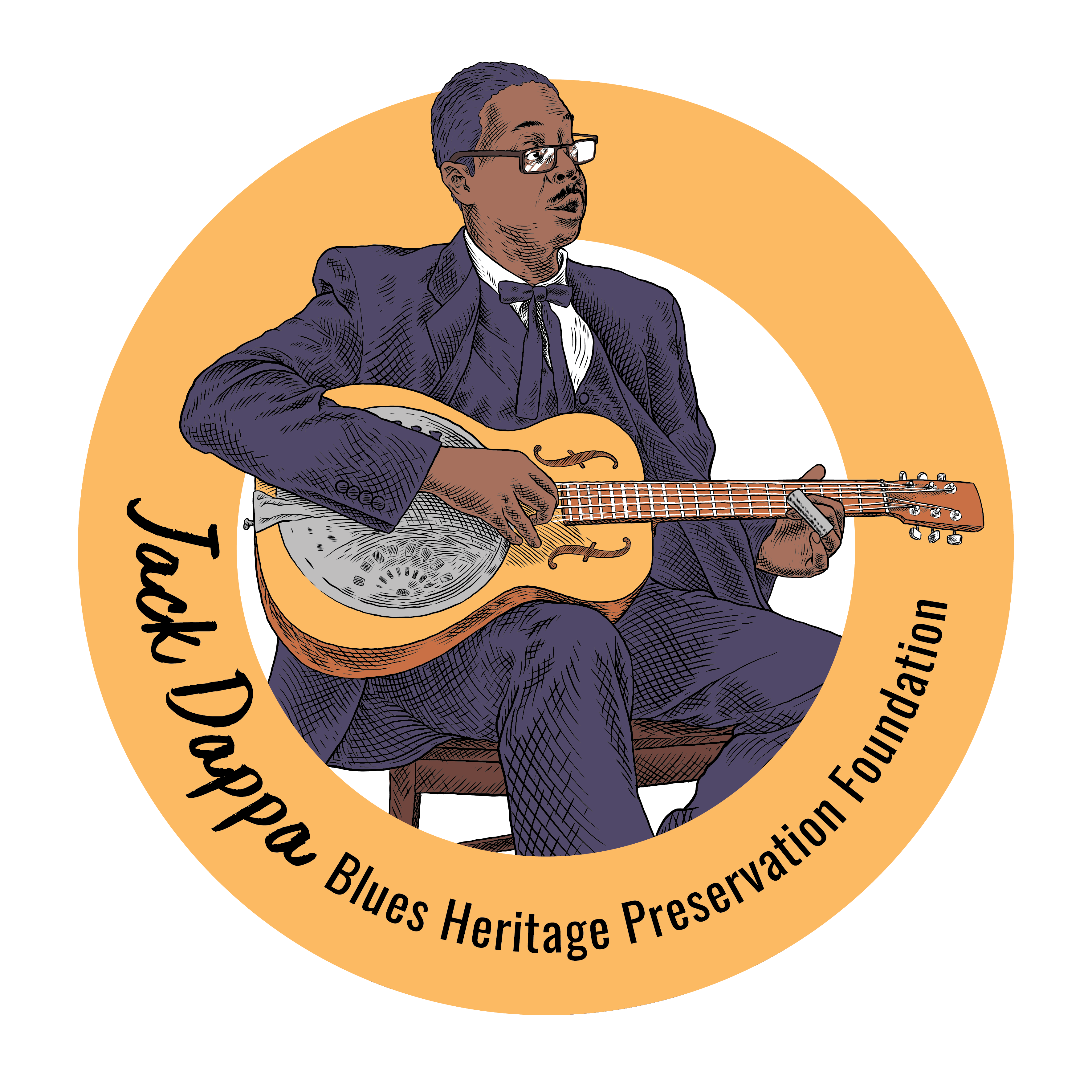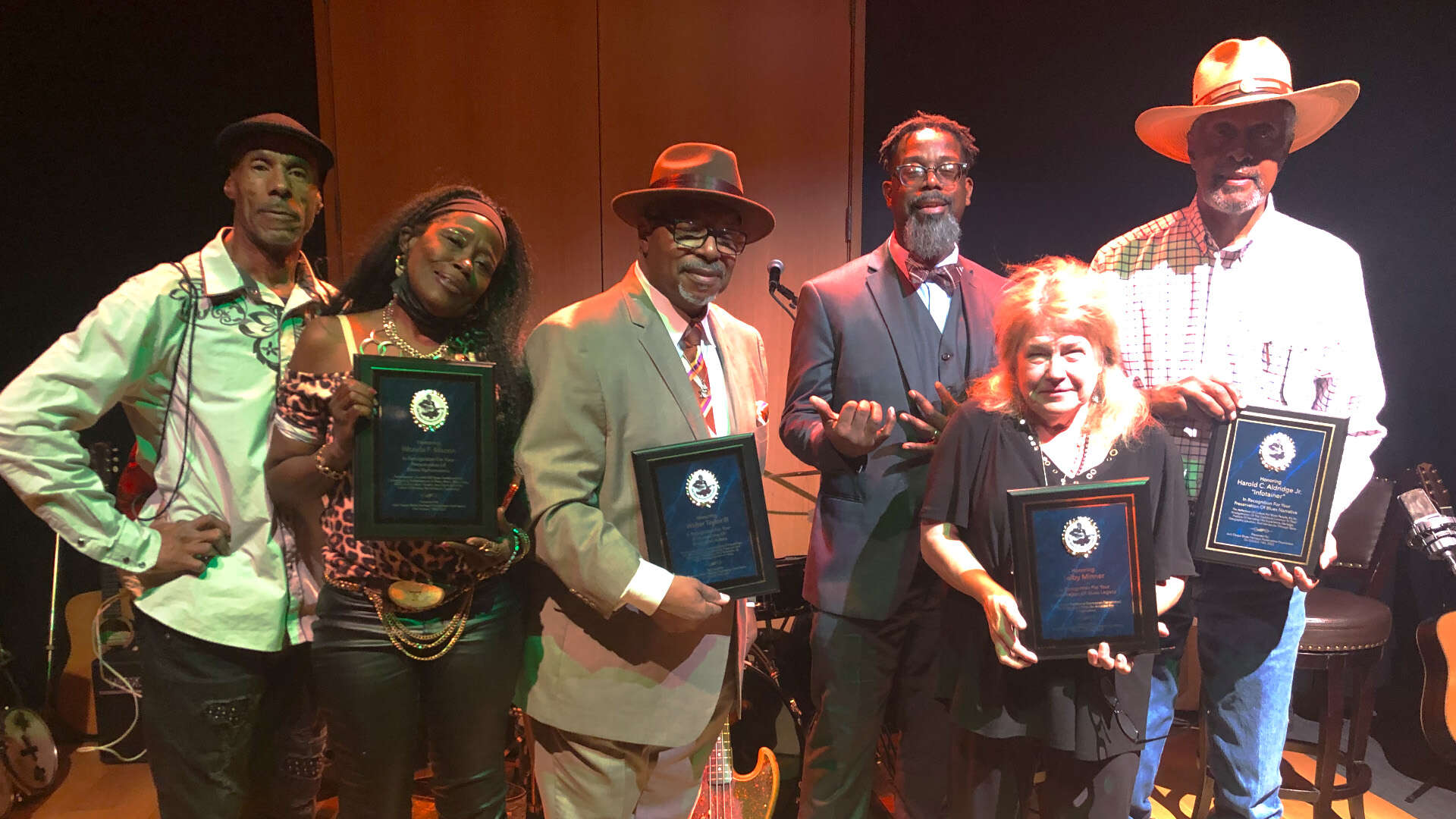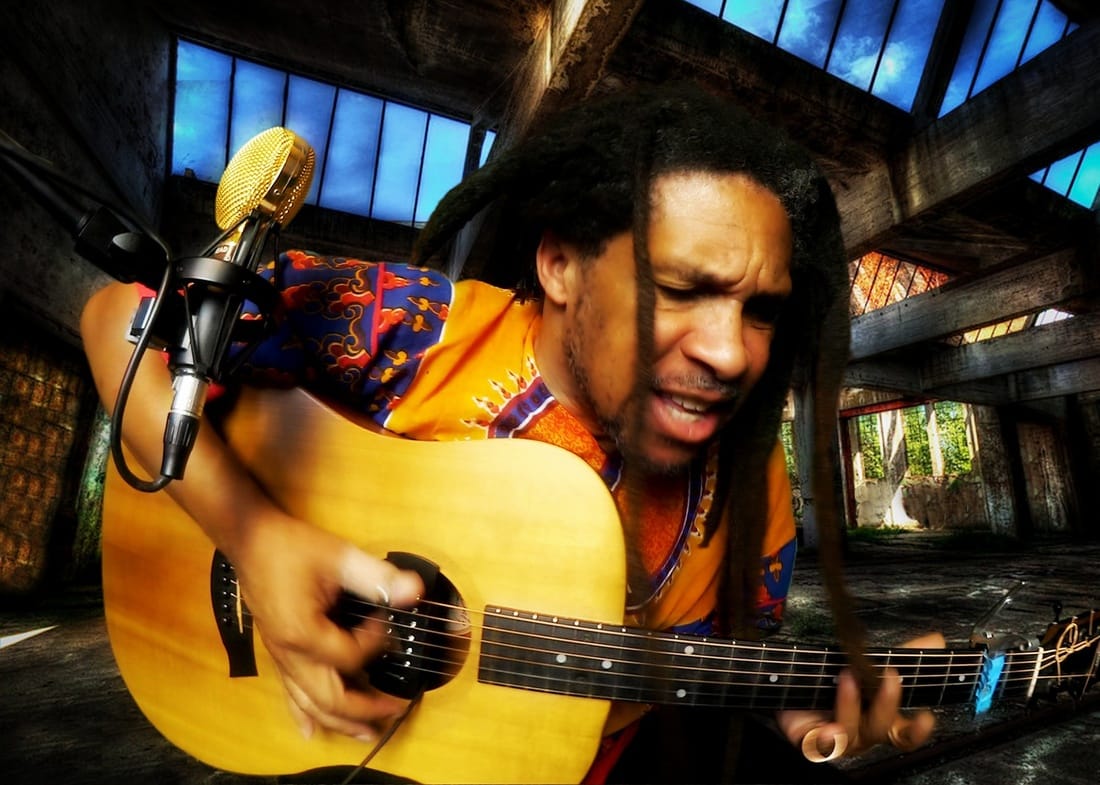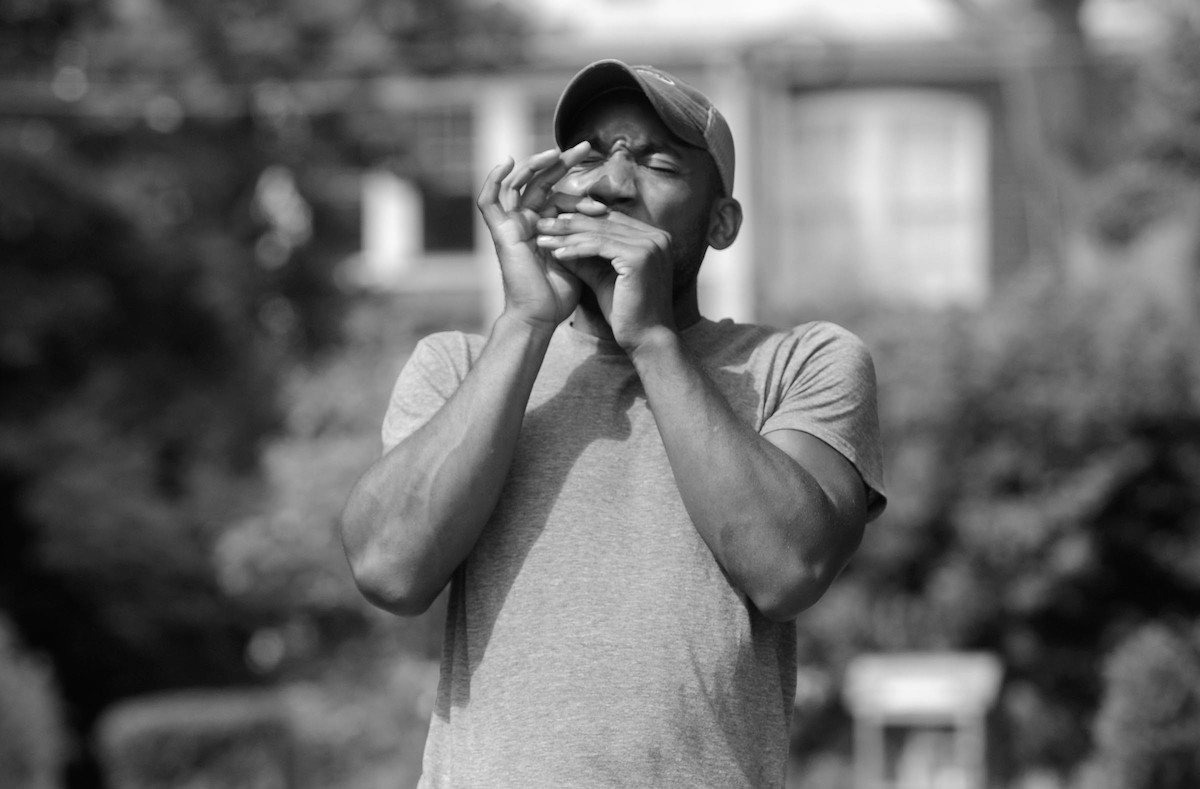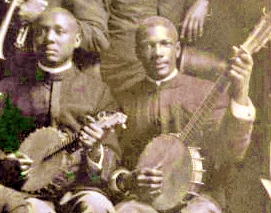Auto Ethnographic Journal Entry Blues Narrative Log 101422
By: Lamont Jack Pearley
I was genuinely excited when I learned the 2022 Annual American Folklore Society Conference was in Tulsa, Oklahoma. The connection of Oklahoma to the Black American and the Copper Colored American has deep roots in the continent, the narrative of the people, and the culmination of what has become known as the United States of America. There were so many thoughts and plans I had for this trip. I have spent several years researching Boley, Oklahoma, along with the relations my family folklore has with Indian tribes from Mississippi and Louisiana that migrated through what became known as the Trail of Tears.
Also, the movement of the music, which most know, is my main objective in documenting Black Folklore and Folklife. Blues, as we know it and celebrate it, is thought to have their beginnings in Mississippi. On the other hand, Chris Thomas King raises a strong point about the Blues’ inception in New Orleans, Louisiana. Then, some suggestions connect Black American Blues from Africa’s isles and those brought here as prisoners for slave purposes. My studies suggest the continent of Turtle Island is the catalyst of the Blues, meaning the entire American continent. In the book The Half has Never been told, author Edward E Baptist writes how a traveling ethnographer documents hearing songs sung by negroes that have the same cadence in multiple locations. The documentation takes place in the early 1700s as the business of slavery was changing. We can then believe that songs of the Black American race classified as Blues have been around before emancipation. Still, more importantly, there is not one designated place in the Americas to claim the black musical expression because it is reflective of the Black experience on the entire American continent.
My studies suggest the continent of Turtle Island is the catalyst of the Blues
lamont Jack Pearley
This leads to my excitement about visiting Tulsa for the 2022 AFS conference. Every year since I first became a member and was involved with the organization, I host and moderate an event called “African American Traditional Music, History, and the Black Experience.” The purpose of this event at an academic and public folklore conference is to present an opportunity for those who study and document tradition, traditional art, expressions, and the like, to be able to hear and experience the tradition directly from the tradition bearers. It is also to take the works documented from the past, interrogate (while appreciating), and put them in the proper context from those still participating and practicing these traditions, cultures, and music. I’ve been honored to create and moderate this event for the last three years.
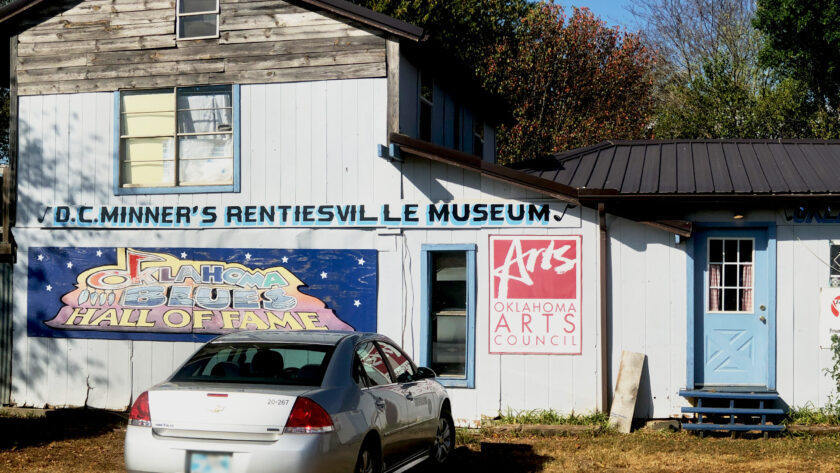
This year, the event was specific to Black Oklahoma Blues. As the event description states, Mississippi and Chicago are popular locations when discussing the blues. However, many regions of the Americas cultivated Black musical expression. Black Oklahoma has a unique history in itself, and the Blues birthed there is birthed from a style known as “Texas Hot Box” Blues. The panel for this year’s conference discussed the experiences of the Blues people of Oklahoma, past and present, and how the many historical events informed the movement, culture, and expression of the people.
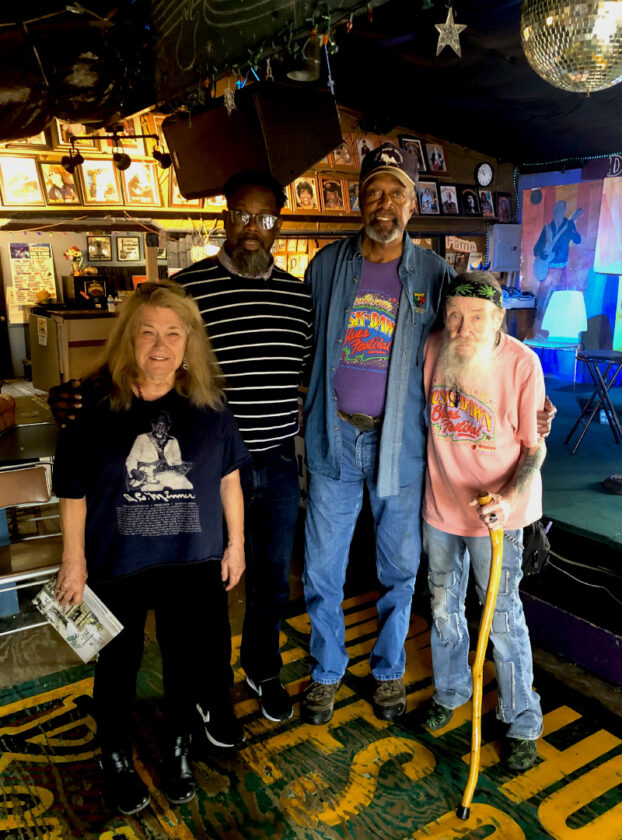
I worked closely with folklorists and academics on the ground, such as Sarah Milligan, Head of Oklahoma Oral History Research Program, Professor of the Hyle Family Endowed, and Professor of University Libraries at Oklahoma State University, Molly O’Conner, the Assistant Director Oklahoma Arts Council, Eyakem Gulilat, the Cultural Development Director Oklahoma Arts Council. Chloe Fourte, the Event and Program Manager for the Woody Guthrie Center, and the entire American Folklore Society team, which includes but is not limited to Roz Rini Larson, PhD., the Annual Meeting and Programs Director, Lorraine Walsh Cashman Special Projects Consultant, and Jessica A. Turner, Ph.D., Executive Director. The program was held at the Woody Guthrie Center Theatre in Tulsa and featured Harold C. Aldridge, Jr. (Infotainer), Wonda F Macon, Walter Taylor III, and Ms. Selby Minnor.
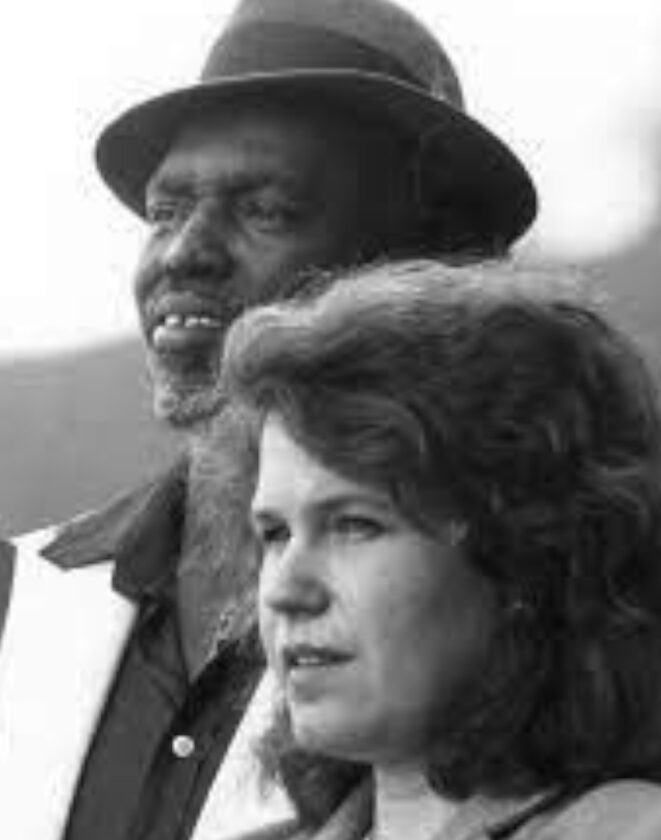
At my initial meeting with who I called, “The Oklahoma on the ground team,” I was told about, then introduced to Ms. Selby Minner, who runs the Oklahoma Blues Hall of Fame, the DC Minner Rentiesville Museum / For Blues Inc Friends, and the “Dusk Til Dawn Blues Festival” all located on the same land. Ms. Selby is the Widow of D.C. Minner, a blues legend who worked tirelessly to keep blues history, traditions, and music alive in Oklahoma among young people and adult blues fans. As written on the Oklahoma Historical Society website, Ms. Selby traveled and performed with D.C. “The two started performing together in 1976, marrying in 1979. With D. C. on guitar and vocals, Selby on bass and vocals, and a series of pick-up drummers, they traveled the nation until tiring of the road life and urban hassles. Returning to Rentiesville in 1988, they opened the Down-Home Blues Club. In 1991 the duo started the Dusk ’til Dawn Blues Festival, featuring an expansive roster of local, regional, national, and international blues artists.
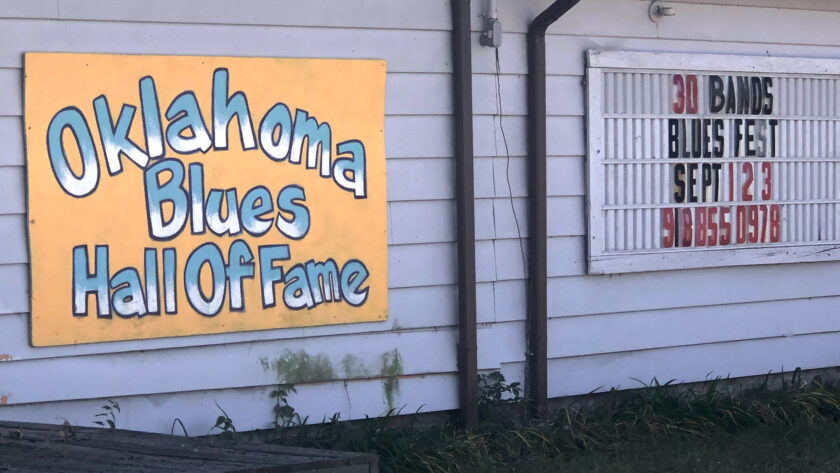
The Minners released a series of independent recordings in the 1990s on their Texas Road Recording label.”
When I first spoke with Ms. Selby, it was immediately evident she is a living encyclopedia of Oklahoma black and blues history. She also is connected to all the performers and black & blues Historians of the region. Our initial conversations were based on the many Black Musicians that originated in Oklahoma, went through the rigorous music programs of Oklahoma, then became famous worldwide. We then discussed the many Black communities of Oklahoma.
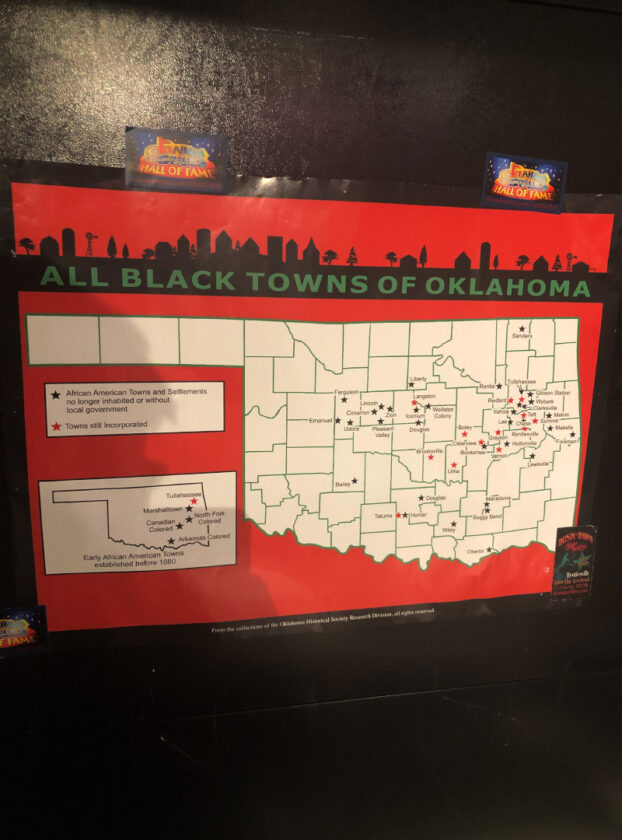
The 50 communities that were considered legitimate because they had post offices and the 200 surrounding Black communities that weren’t regarded as official yet were very legitimate. Both conversations lay the foundation for the “Blues Narrative Project” I began, and I look to continue the work with the partnership of grant-giving organizations, philanthropists, and my fantastic and spectacular folklorists and oral historian co-workers.
As we worked toward creating an event that would edify and entertain, I knew from the beginning I did not want to bring Blues Musicians to Tulsa that was not from Oklahoma, but I wanted to highlight the musicians that lived and expressed the blues from that region. To rightfully honor the city, state, people and their traditional music, it had to be local musicians, which is why I was introduced to Ms. Selby. That introduction was God-sent for all involved. Ms. Selby connected me to three Blues musicians and singers that were perfect for the event. They are staples in the Blues and Black community of Oklahoma and have deep-rooted skin in the game. They also have been part of the Dusk Til Dawn Blues Festival and have performed at the juke on the Minner property.
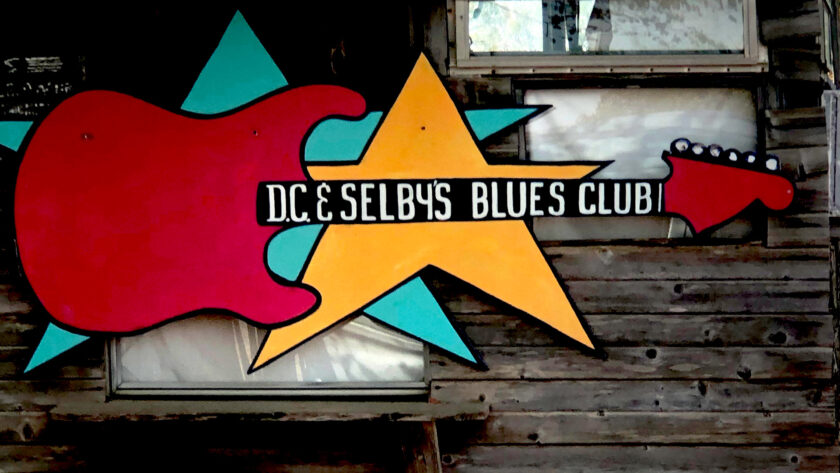
The Woody Guthrie Center Theatre, Chloe, and Sarah were tremendously helpful in ensuring this event met my vision’s criteria. I hope all mentioned and involved will also continue the work with me with the Blues Narrative. The plan is to focus on Oklahoma and the D.C. Minner Blues property for the next, yet most notable thus far, installment of the Blues Narrative. Throughout the entire planning and execution of the event, I was pleased there was no miscommunication. All seats were filled, and those who couldn’t make it in could sit in another room and watch via Livestream.
It consistently ensures local businesses and people are highlighted, or as Sarah said, “we are actually doing folkloristic work!” Meaning we were among the people, featuring the people, in and at venues patronized and performed in by the people.
Sarah Milligan
So many moments and conversations weren’t recorded that could have been. It is essential to appreciate and honor silence and earnest communication that is simply for those present. A trust build is part of the relation between the documenter and documented. That is something I will go into more in another writing. Here, I reflect on the things leading up to a significant experience for all involved, from panelists to moderator, to the audience. Besides hearing the story and performances of our Oklahoma panel, presenting them with a plaque in honor of the works they’ve done and are doing is a vital moment for me. I decided to utilize a custom award maker company local in Tulsa, which was a great decision on many fronts. It consistently ensures local businesses and people are highlighted, or as Sarah said, “we are actually doing folkloristic work!” Meaning we were among the people, featuring the people, in and at venues patronized and performed in by the people.
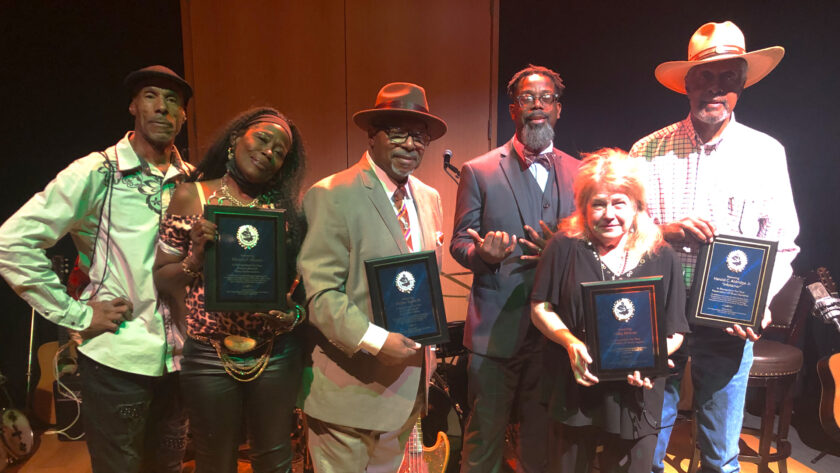
That is what I genuinely work to do, conduct applied folkloristic works that benefit the people. The audience was academics, public folklorists, ethnographers, anthropologists, broadcast ethnomusicologists, community scholars, and advocates that work to do the same. I look forward to reconnecting with those I met, like Dr. Autumn Brown (Tri-City Collective), Quraysh Ali Lansana (Tri-City Collective), Carlos A Moreno (Tri-City Collective), and others as we work the Blues Narrative in Oklahoma.
